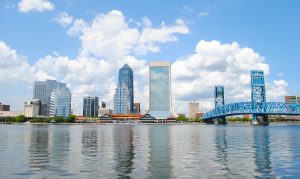Yet to figure out why is Jacksonville called Duval? Jacksonville is called “Duval” because it is located in Duval County, named after William Pope Duval, the first Territorial Governor of Florida, and the city’s identity is closely tied to this county due to the 1968 consolidation of the city and county governments
Jacksonville, a vibrant city in the northeastern part of Florida, is often colloquially referred to as “Duval.” This nickname might puzzle many visitors and even some residents, leading them to wonder about the origins and significance behind this moniker.
To fully understand why Jacksonville is called Duval, it is essential to delve into the historical, cultural, and administrative aspects of the city and its surrounding county.
This article aims to provide a comprehensive explanation, enriched with historical facts, cultural context, and the present-day relevance of this unique identifier.
Table of Contents
ToggleWhy Is Jacksonville Called Duval? Complete Guide
Historical Background of Jacksonville and Duval County
The Founding of Jacksonville
Jacksonville’s history dates back to the early 19th century when it was founded in 1822. Named after Andrew Jackson, the first military governor of the Florida Territory and later the seventh President of the United States, Jacksonville has grown from a small settlement into a bustling metropolis. The city’s strategic location along the St. Johns River made it a pivotal point for trade and transportation, contributing to its rapid development.
Establishment of Duval County
Duval County, established in 1822, was named in honor of William Pope Duval, the first Territorial Governor of Florida. The creation of Duval County was part of a broader effort to organize the newly acquired Florida Territory into manageable administrative regions. The county’s boundaries initially encompassed a much larger area than they do today, reflecting the sparse population and vast wilderness of early 19th-century Florida.
Administrative Significance
Consolidation of City and County Governments
One of the most significant events in Jacksonville’s history was the consolidation of the city and county governments in 1968. This merger was driven by a need to address issues of urban sprawl, inefficient governance, and economic disparities between the city and its surrounding suburbs. The consolidation created a single entity that governs both Jacksonville and Duval County, effectively blurring the lines between the two.
Impact on Local Identity
The consolidation reinforced the connection between the city and the county, leading to the widespread use of “Duval” as a shorthand reference to Jacksonville. This unique administrative structure is relatively rare in the United States, further solidifying the distinct identity of the area.
Cultural and Social Context
Pride and Community Spirit
The term “Duval” has transcended its administrative origins to become a symbol of local pride and community spirit. Residents of Jacksonville often chant “Duuuuuval!” at sporting events, particularly during Jacksonville Jaguars football games, to express their loyalty and enthusiasm for their city. This chant has become an iconic part of the local culture, uniting people from diverse backgrounds under a shared identity.
Influence of Sports and Media
The popularization of “Duval” can also be attributed to the influence of sports and media. The Jacksonville Jaguars, established in 1995, have played a significant role in promoting the nickname through their marketing and fan engagement efforts. Local media outlets, social media, and community events have further amplified the use of “Duval,” embedding it deeply into the city’s cultural fabric.
Present-Day Relevance
Economic and Demographic Growth
Jacksonville and Duval County have experienced significant economic and demographic growth over the past few decades. The city’s diverse economy, driven by industries such as logistics, healthcare, finance, and technology, has attracted a steady influx of residents and businesses. This growth has reinforced the relevance of “Duval” as a unifying term that encapsulates the area’s dynamic and evolving identity.
Tourism and Recognition
For tourists and newcomers, understanding the meaning behind “Duval” offers a deeper appreciation of Jacksonville’s unique character. The nickname has become a recognizable brand, featured in local merchandise, promotional materials, and tourism campaigns. It serves as a gateway to exploring the rich history, vibrant culture, and numerous attractions that Jacksonville has to offer.
Why Is Jacksonville Called Duval FAQs
1. What is the origin of the name “Duval” in Jacksonville?
The name “Duval” in Jacksonville originates from Duval County, which was named in honor of William Pope Duval, the first Territorial Governor of Florida. The connection between Jacksonville and Duval County was further strengthened by the consolidation of their governments in 1968.
2. How did the term “Duval” become popular in Jacksonville?
The term “Duval” gained popularity through its use in local culture, particularly in sports and community events. The Jacksonville Jaguars football team played a significant role in promoting the nickname, and it has since become a symbol of local pride and identity.
3. What was the significance of the 1968 consolidation in Jacksonville?
The 1968 consolidation of Jacksonville and Duval County governments was significant because it created a unified administrative entity, addressing issues of urban sprawl and inefficient governance. This merger reinforced the connection between the city and county, leading to the widespread use of “Duval” as a reference to Jacksonville.
4. How is “Duval” used in local culture and events?
“Duval” is used in local culture and events as a chant to express community pride and support, especially during Jacksonville Jaguars football games. It is also featured in local merchandise, promotional materials, and tourism campaigns, further embedding it into the city’s cultural fabric.
5. What impact has the term “Duval” had on Jacksonville’s identity?
The term “Duval” has had a significant impact on Jacksonville’s identity by uniting residents under a shared symbol of local pride. It has become a recognizable brand that represents the city’s unique character, history, and community spirit.
6. How does the nickname “Duval” contribute to tourism in Jacksonville?
The nickname “Duval” contributes to tourism in Jacksonville by offering a distinctive and memorable brand that attracts visitors. Understanding the meaning behind “Duval” allows tourists to appreciate the city’s rich history and vibrant culture, enhancing their overall experience.
7. What are some key historical events that shaped Jacksonville and Duval County?
Key historical events that shaped Jacksonville and Duval County include the founding of Jacksonville in 1822, the establishment of Duval County in the same year, and the 1968 consolidation of city and county governments. These events laid the foundation for the area’s development and its unique identity.
Conclusion
In conclusion, Jacksonville’s nickname “Duval” is deeply rooted in the city’s historical, cultural, and administrative context. From its origins in the early 19th century to its present-day significance, “Duval” embodies the unique character and community spirit of Jacksonville and Duval County.
This term has transcended its initial administrative meaning to become a powerful symbol of local pride and identity, uniting residents and enhancing the city’s appeal to visitors.
As Jacksonville continues to grow and evolve, the nickname “Duval” will undoubtedly remain an integral part of its story, celebrating the rich heritage and vibrant future of this dynamic city.
Understanding the history and significance behind Jacksonville’s nickname not only enriches our appreciation of the city but also strengthens our connection to its past and present. As we look to the future, let us continue to embrace and celebrate the unique identity that “Duval” represents, fostering a sense of unity and pride in our community.





